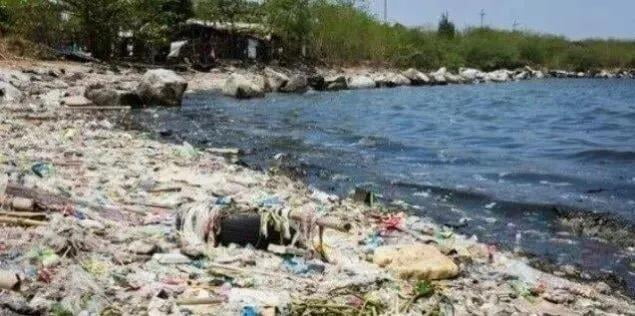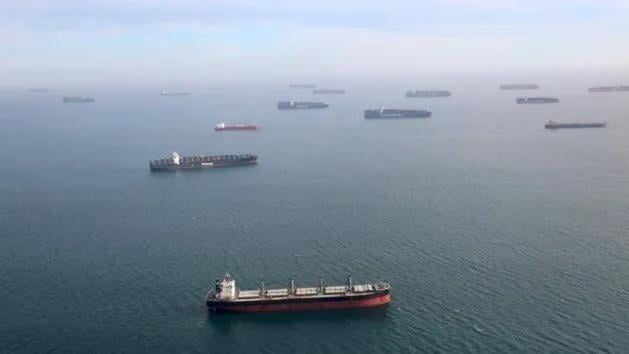The United Nations Environment Assembly in the Kenyan capital could mandate an intergovernmental negotiating committee to broker an agreement that would require all countries to adopt national targets and plans to eliminate plastic spills, especially to reduce plastic spills into the ocean, and to recycle and manage them.
The amount of plastic in the ocean is unfathomable - as many as 51 trillion pieces of plastic in surface waters alone. Marine plastic pollution harms animals that ingest it, and the risks to humans of eating seafood contaminated with it remain unknown.

Most of the plastic entering the ocean comes from rivers: A report found that up to 95 percent of plastic comes from just 10 river systems, eight of which are in Asia. A large percentage of this originates in developed countries, which have exported it to developing countries for recycling or disposal.
In addition to massive floating accumulations of plastic, such as the Great Pacific Garbage Patch, which is three times the size of France, scientists are worried about microplastics smaller than 5 millimeters, which can be found everywhere from the far Antarctic to the deepest ocean trenches.
Plastic pollution is not limited to water either, as plastic is found in every corner of the planet, from the Arctic to Mount Everest. In addition, plastic production is a major driver of climate change. If the entire plastic life cycle were a country, it would be the fifth largest emitter of greenhouse gases.
While technical solutions to clean up plastic waste have proven successful and attempts to limit the use of single-use plastics have been popular, the challenge remains to limit the production of the material in the first place. Only a global agreement can achieve this goal.

Existing global treaties cover elements of the problem: the Basel Convention regulates trade in waste, including plastics; IMO, the International Maritime Organization, deals with marine plastic litter on ships; and the Stockholm Convention protects humans from plastic products. However, none represents a holistic tool to address the problem at the global level.
The United Nations presented the idea of a global response to plastic pollution at the third Environment Assembly in 2017. It established an ad hoc open-ended group of experts on marine litter and microplastics to consider the form of a global agreement.
Momentum has been building ahead of this month's negotiations, with 154 countries already supporting negotiations on a new global deal. Late last year, U.N. Special Envoy for Oceans Peter Thomson told the COP26 climate summit that a treaty in Nairobi is essential to keep the oceans healthy.
More than 70 consumer brands, including Coca-Cola, PepsiCo, Unilever and IKEA, issued a joint statement in January setting out plans to reduce plastic production and use. Notably, the United States, the world's largest producer of plastic waste, announced late last year that it would participate in the negotiations.
In order to begin negotiations on a global treaty, a resolution defining its scope and mandate must first be adopted at this month's Environment Assembly. Three such resolutions have already been proposed and will be discussed at this meeting.
One of the resolutions, sponsored by Rwanda and Peru and co-sponsored by some 50 countries, including Norway, Chile, Pakistan and the EU, is considered the most ambitious. It proposes an "open mandate" for the negotiating committee, meaning that negotiators can work on a wide range of issues related to plastic pollution as discussions progress. It proposes a "whole life cycle" approach to plastics, addressing both plastic production and waste management. Its language aims to address plastic pollution in any environment, not just the oceans.
The second resolution was introduced by Japan and supported by Antigua and Barbuda, Cambodia, Palau and Sri Lanka. The resolution specifically addresses "marine plastic pollution," focusing on plastic waste management (rather than production), and proposes a closed mandate, meaning that negotiators can only address this aspect of plastic pollution in their efforts to reach an agreement.
The third is an alternative resolution on single-use plastics issued by India on Jan. 31. Unlike the other proposals, India's document focuses on a voluntary framework rather than a mandate to create a legally binding global agreement.

